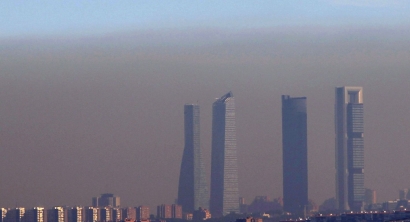The real estate stock is responsible for more than 35% of total CO2 emissions -remember from ISTA-, heating being one of the most important emitting sources, after road traffic. Well, the passage of the Filomena storm through Madrid, which was characterized by greater use of heating due to low temperatures and a sharp drop in mobility due to snow, was the moment chosen by ISTA to analyze how it influences heating in environmental pollution. The study carried out by the company has determined that heating consumption shot up by 47.28% (compared to the same dates last year) during Filomena’s visit to Madrid. This data, associated with the fact that the City Council was forced to declare Pollution Level 1 on the 17th, would highlight the weight of the pollution emitted by the heating systems (coal, diesel and, above all, natural gas) in the urban air.
Within this framework, ISTA recalls that, as of 2022, with the ban on the use of coal boilers, the progressive elimination of diesel boilers and the mandatory installation of heating meters, the total volume could be reduced by 40% of emissions in the city of Madrid, calculated from ISTA.
Ignacio Abati, CEO of ISTA: “This increase in consumption during the key days of the Filomena pass shows how central heating systems, especially those of coal and diesel, play a very important role in environmental pollution. However, it must be taken into account that this is an exceptional phenomenon in which several circumstances converged: on the one hand, the heating was switched on 24 hours a day due to extremely low temperatures outside and, on the one hand, another, to the scarce mobility of vehicles and air traffic, which are the main causes of CO2 emissions in the capital “
ISTA recalls, on the other hand, that reducing polluting gas emissions by 80% by 2050 is the objective that Spain has set itself in the European framework for combating climate change, and, “in this context -added from the company -, central heating in buildings will be key “. ISTA also mentions studies by the Madrid City Council, which put 200 coal boilers and 4,500 those for diesel that still remain in the capital.
According to the company, in Spain there are about 1.5 million homes with central heating, 600,000 homes in the Community of Madrid, which are responsible for the emission of 1.05 million tons of polluting gases into the atmosphere each year . ISTA estimates that the ban on the use of coal boilers from 2022, the progressive elimination of diesel boilers and the mandatory installation of heating meters could reduce the total volume of emissions in the city of Madrid by 40%.
The Environmental Sustainability Strategy Madrid 360 sets the objective of reducing nitrogen oxide emissions by 20% in 2023 to comply with Directive 2008/50 / EC of the European Parliament and of the Council of 21 May 2008 on air quality. The phasing out of boilers that use solid fossil fuels represents a key action to achieve this goal.
– .


